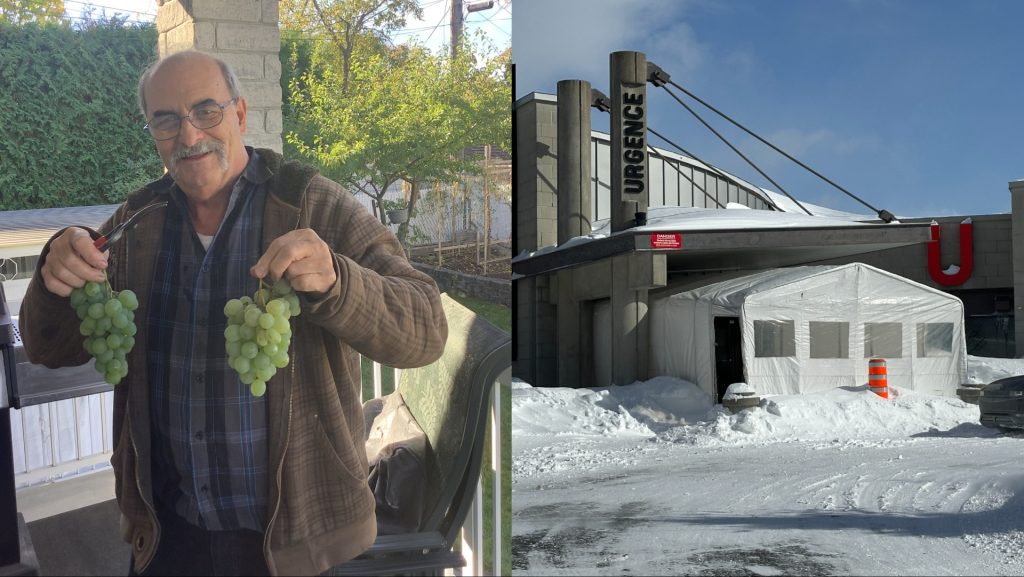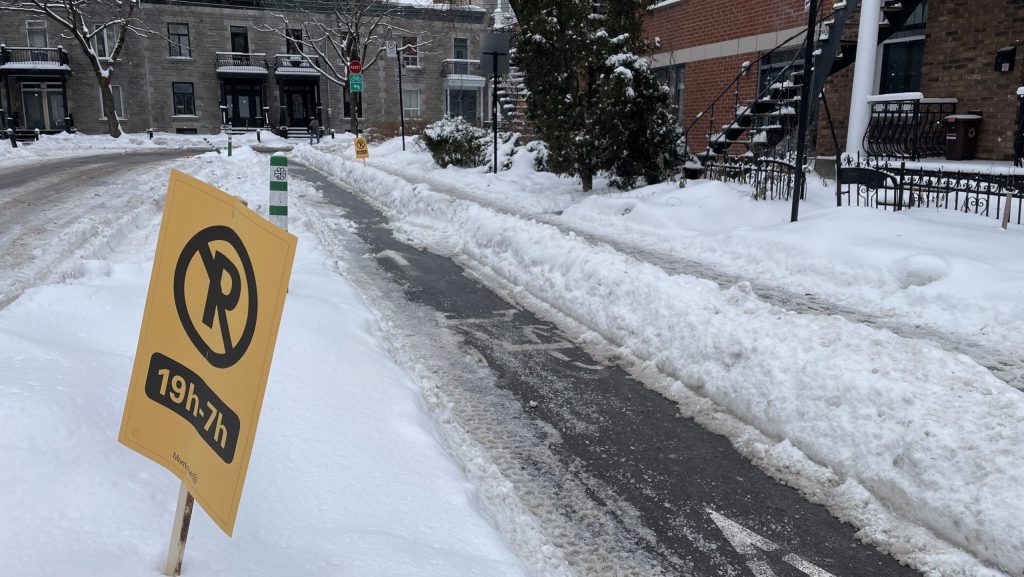Montreal presents balanced $7.2B budget for 2025, residential property taxes to rise an average of 2.2%

Posted November 20, 2024 11:15 am.
Last Updated November 20, 2024 5:51 pm.
The City of Montreal’s budget for 2025 is balanced and totals $7.28 billion.
Mayor Valérie Plante presented the budget called “A Metropolis on a Human Scale” at City Hall on Wednesday.
The City says the 2025 budget will allow the municipal administration to address their priorities including: organizational performance, housing, homelessness, downtown, infrastructure and the future of the city.
“This balanced budget reflects all the efforts made in recent years to consolidate the city’s finances, while investing in the priorities we share with Montrealers,” said Luc Rabouin, Chair of Montreal’s Executive Committee, in a press release.
The budget represents an increase in expenses of 4.2 per cent.
The City says they are investing in the needs of Montrealers, while “minimizing the tax burden on citizens.”
Property taxes increasing in 2025
For 2025, the tax increase for residential properties will be on average 2.2 per cent across Montreal, varying from borough to borough, and on average 1.9 per cent for non-residential buildings.
Each borough, however, sets their own rates. The highest property tax increases for residential buildings is seen in Pierrefonds-Roxboro at 4.1 per cent, followed by L’Île-Bizard—Sainte-Geneviève at 3.4 per cent, and then Mercier—Hochelaga-Maisonneuve at 3.1 per cent.
The Ville-Marie borough is the lowest increase next year — the only borough seeing an increase of under one per cent — at 02. per cent.
The average single-family home in the city, now valued at roughly $720,000, would see a tax increase of about $135.
The average condo will see an increase of $38 and plexes of two to five dwellings: $132.
While the increase for commercial buildings averages 1.9 per cent across Montreal, other boroughs are seeing amounts much higher.
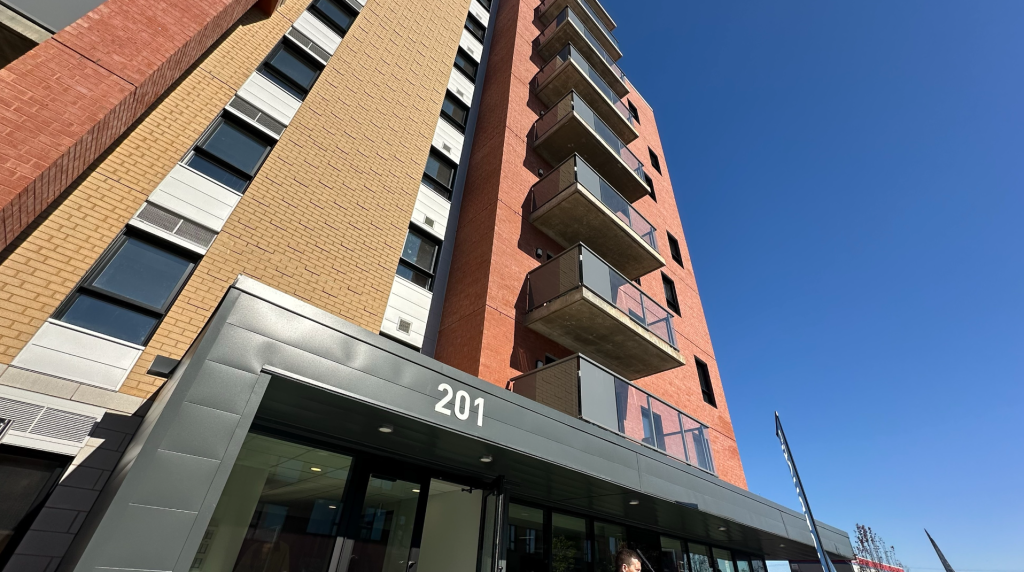
For example, in Lachine, non-residential buildings will see tax increases of 9.6 per cent next year. In Saint-Laurent, it will be 7.7 per cent, followed by Anjou at 5.9 per cent.
The City says the the increase in property taxes is in line with observed inflation for the Montreal area between Aug. 2023 and Aug. 2024.
Investments in housing
When it comes to housing and addressing the crisis, the City says it will intensify its efforts to accelerate construction and increase the overall residential supply, investing $47 million more.
It plans to implement its Loger+ strategy, that has an envelope of $38.2 million, aimed at achieving 20 per cent of non-market housing by 2050.
Over the next three years, the City is increasing its Housing Department Budget by $100 million.
Combatting homelessness
The City says it plans to tackle the issue of homelessness by allocating funds to support networks and prevention.
$9.8 million will go towards support for organizations working in the field of homelessness. $11 million will go towards combatting poverty in 2025.
In 2025, Montreal’s public consultation office will examine the conditions necessary to ensure the best possible
integration of resources for people experiencing homelessness.
The Mobile Mediation and Social Intervention Team (ÉMMIS), composed of front-line psychosocial workers, will have $10 million set out in the budget, $5 million of which coming from the Quebec government. Its mission is to calm conflict or situations of distress in public spaces by being on the ground 24 hours a day, seven days a week.
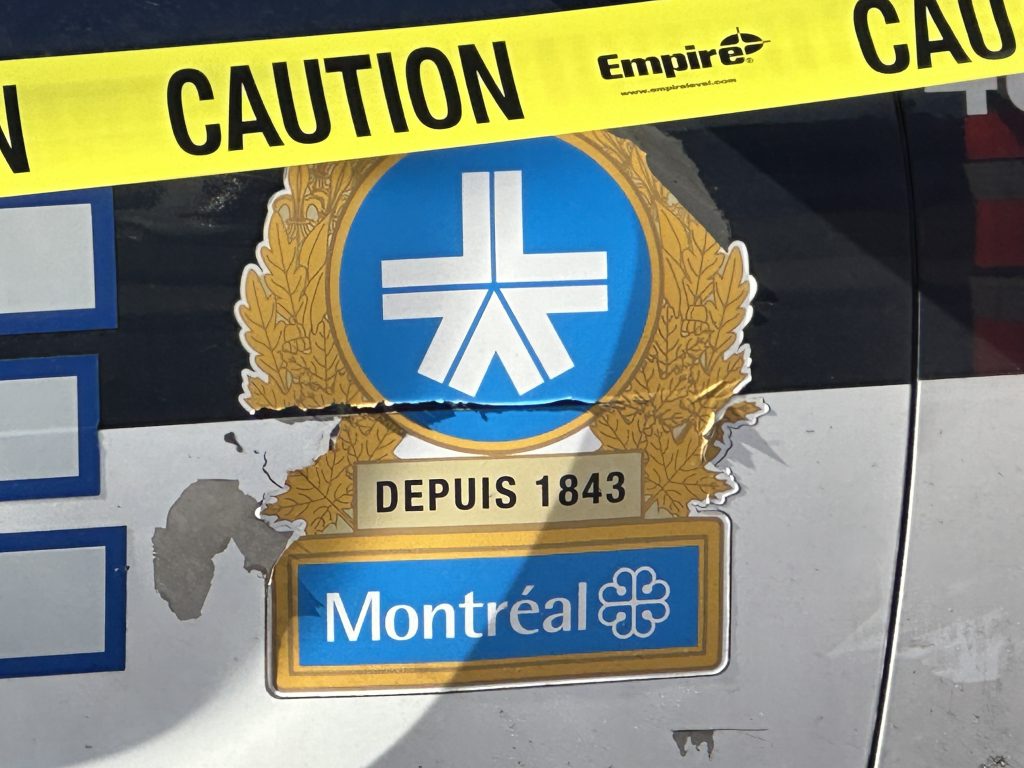
Public security, support to SPVM
The hiring of police officers has been prioritized in order to achieve the goal of increasing the SPVM’s police force by 225 people.
Over the next 10 years, the City will also make investments in public safety infrastructure, estimated at $356.9 million. The City will renovate, upgrade, conform to standards the buildings of the SPVM and the Montreal Fire Department (SIM).
An amount of $97.2 million will also be allocated to the relocation of the 911 call centre to help provide a rapid local response to emergency calls throughout the territory.
The City will also maintain and modernize the computer systems supporting the activities of the SPVM and SIM, for an amount of $156.3 million.
‘Climate budget’
The City will continue to deploy the “climate budget,” which was launched last year. It’s a governance system that integrates climate considerations into the budget process and a framework to target which climate actions are needed.
The City says it will maintain its commitment to dedicating 10 to 15 per cent of its ten-year capital expenditure program to investments
related to adaptation to climate change, particularly in natural and hybrid infrastructures.
City limiting hiring
In 2025, the City says it will continue optimizing its management of resources and by doing so, plans to save $29.3 million next year, and eventually leading to annual savings of $200 million.
The City plans to limit its hiring and will not increase the number of staff next year, adding that the weight of salaries will be 38 per cent, compared to 45 per cent in 2016.
Optimizing water infrastructure
The City says it plans to be more resilient to flooding by 2025, amid the climate crisis and weather issues related to heavy rainfall.
Over the next 10 years, the City will invest nearly $6.56 billion in its infrastructure, such as drinking water plants, drinking water and wastewater networks, and reservoirs and pumping stations — with more than $500 million will also be invested in the primary water system.
$10 million more to deploy the ‘Downtown Strategy‘
$10 million will go towards increasing downtown traffic and intensifying collaboration with merchants and cultural organizations. The City says it wants to focus on the challenges of the downtown core including cleanliness.
Financial relief for NPOs
As of 2025, non-profit organizations (NPOs) that own their buildings and that hold recognition from the Commission municipale du Québec (CMQ) will benefit from an exemption from the compensation that was usually required of them.
The City estimates that will provide about $10.5 million in relief to upwards of 600 organizations, which are already exempt from property taxes.
$24.8 billion in investments over 10 years
The ten-year capital expenditure program amounts to $24.8 billion and includes a set of projects and investment programs that the City plans to carry out or undertake over the next 10 years.
“The City of Montréal is mobilizing to maintain its infrastructure and develop sustainable and inclusive living environments,” the budget states.
Just over 29 per cent of the investments will be allocated to the environment and underground infrastructure. Another 26.7 per cent will go towards road infrastructure.
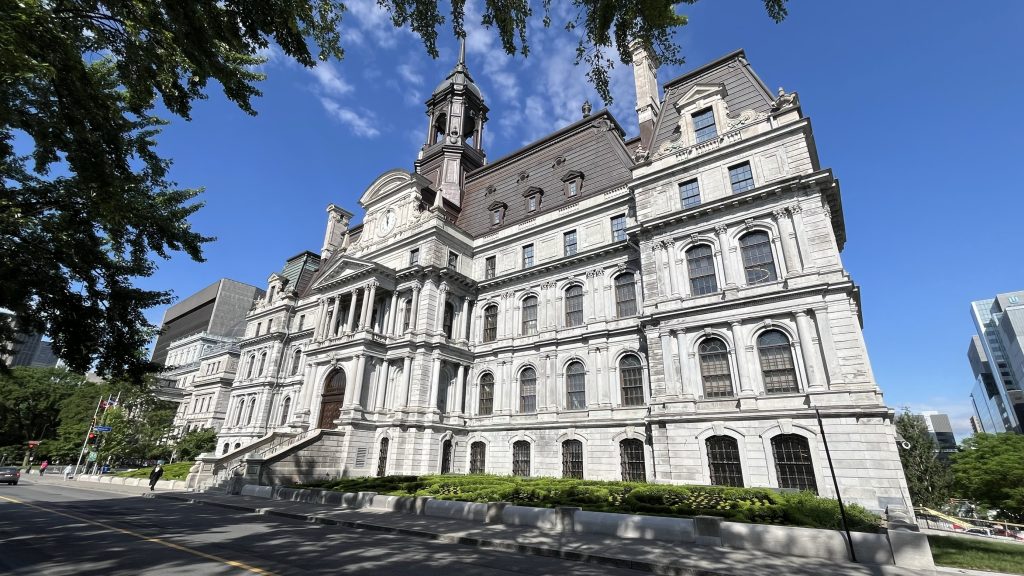
Breakdown of how expenses are allocated in the $7.28B budget:
- 18% – public security
- 16.3% – debt services
- 11.2% – administration
- 10.1% – leisure and culture
- 10.5% – public transport
- 7.1% – cash payment of fixed assets
- 6.5% – road network
- 4.4% – water and sewers
- 4.1% – planning, urban planning and economic development
- 3.7% – collection, disposal of waste and environment
- 3.5% – social housing and more
- 2.8% – snow removal
- 1.8% – corporate charges
Sources of income:
- 63.2% from taxation
- 19.4% from services rendered and other income
- 9.6% from transfers
- 7.8% from shares of reconstituted cities
Plante administration’s final budget
This is Plante’s eighth budget and the final one of her administration ahead of the municipal elections next fall, after she announced last month that she would not seek re-election.
“It has been a great honour to have helped transform Montreal into a metropolis that is better prepared to meet the challenges of tomorrow,” she wrote in the budget.
“I am proud to leave the house in order and to offer the next administration solid programs to continue building a metropolis that is affordable, safe, dynamic and adapted to climate challenges,” Plante said in a press release.
